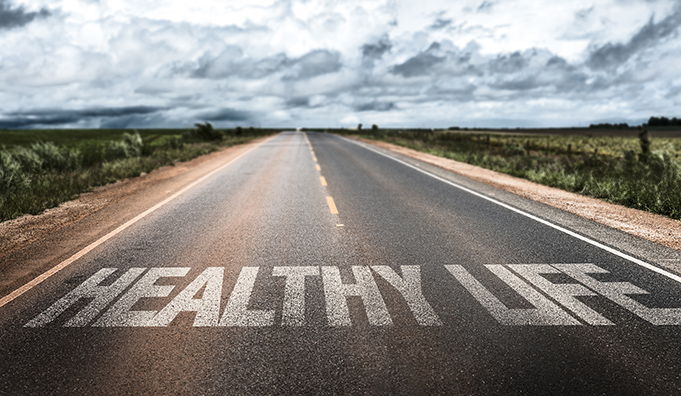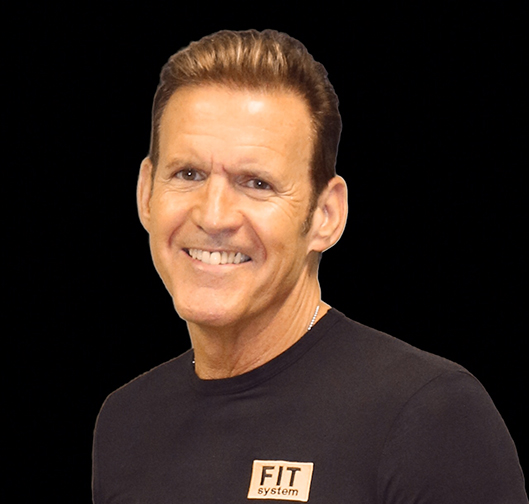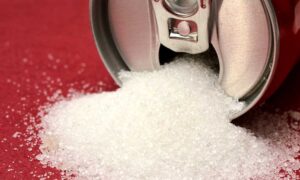It’s true that eating late can lead to weight gain. A key point to remember if you eat later than normal, is that the food needs to be protein-based and light. Also, eating late in combination with caffeine and alcohol can cause problems as we attempt to obtain restful sleep.
The biggest mistake people make when they eat late is choosing foods that are generally heavy on carbs. Carbs convert to sugar and wreak havoc on blood sugar levels. The result is poor rest. Some people wake up with a sugar hangover. Then guilt sets in, and we think we need to skip some meals. Before we know it, we have gone more than 12 hours without eating (while usually loading up with caffeine), and our metabolism shuts down.
Try to run your truck without fuel then push it down the road. You won’t have the strength or energy to push due to lack of fuel, and your system begins eating away at muscle tissue instead of fat. You must fuel your system in order for it run effectively. Running on empty is not good.
What fuel are you putting in your engine?
Your doctor or dietician can advise you, but only you can make the choices leading to good heart health. It is important to eat colors. You know they have minerals and vitamins, but a good variety of fruits and vegetables can control weight and lower blood pressure. Eating fish at least twice a week will boost your omega-3 fatty acids and help lower your risk of coronary artery disease.
Fried foods, partially hydrogenated oils and saturated fats should be kept to a minimum.
Also, avoid simple carbs. These carbohydrates may leave a sweet taste in your mouth, but that’s where the fun stops. Simple carbs are already broken down to a form quickly converted to sugar in your bloodstream. A spike in blood sugar releases the hormone insulin, which helps your body turn the sugar into energy for your body to use in movement. When blood sugar is elevated quickly and for extended periods of time, the result is an increased workload on your pancreas. In addition, a carb-heavy diet won’t help if you’re trying to lose weight, as this extra sugar quickly turns to fat.
Are you at risk?
Heart disease is America’s No. 1 killer. The following are some of the greatest risk factors:
- Smoking
- Diabetes
- High cholesterol level
- High blood pressure
- Family history of heart attack
- Lack of exercise
- Stress
- Obesity
Work in that work out
Regular exercise can help maintain your weight, improve blood pressure and stabilize blood sugar. Keeping active can lower the risk for a lot of chronic diseases, including Type 2 diabetes, depression and cancer. Just because you can’t get to a gym doesn’t mean you can’t stay active. Walking, stretching, push-ups and sit-ups are just a few simple exercises you can do most anywhere.
See the road ahead
The most common mistake people make when it comes to eating is waiting too long between meals. When our energy levels drop, we instinctively reach for the closest food available, which for over-the-road drivers is usually processed or fast food. Instead, plan ahead. When you’re on the go, pack nutritious snacks to keep your energy level stable. When you are ready to eat, make good, healthy choices. If you are overweight, eat proteins instead of carbs to speed up your metabolism. Scientists recently discovered heavy people burn fat more quickly after eating high-protein meals than high-carb meals. You don’t drive your rig with lights off at night. You need to see the road ahead. Follow the same common sense when managing your health. You need to be sure to see what’s ahead on the road to good health.
Pair up
Attention team drivers! It’s been proven that when one partner participates in a weight loss program, the other is more likely to eat less calories, too. Couples tend to support each other. You can do this!
Bob Perry is a regular contributor to The Trucker. He has spent nearly the past four decades on a mission to educate professional drivers and share life-changing products and services to help them live healthier lives while on the road. Recognized throughout the transportation industry, from bus drivers to over-the-road professional drivers, Perry has played an important role in creating a paradigm shift helping regulatory agencies, private and public sector entities, and consumers understand the current health challenges of the professional driver. He has participated as a wellness advocate in several roundtable discussions, large audience groups and small forums as well as going “curbside” through a national truck stop tour.
Bob’s articles have been featured in The Trucker and a number of other national transportation industry publications and is the host of a weekly wellness call produced by Rolling Strong. Bob has been a regular guest on RedEye Radio and Land-Line Radio, and is often an invited guest on Sirius radio shows. He has been featured in the New York Times, Men’s Health Magazine, Drug Store News, American Road Magazine, WSJ, NPR, ABC National Radio, as well as hundreds of daily newspapers. He has appeared on television news shows across the nation, including a featured TV segment on ABC NightLine News.





